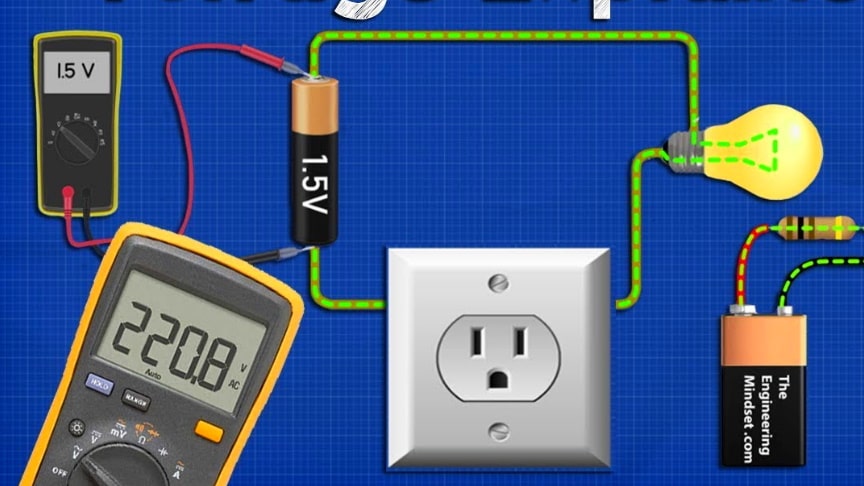Voltage explained. What is voltage and what does it do? In this video we discuss how it work and its purpose to understand how electricity works. We’ll look at voltage for both alternating current and direct current starting off very simply and slowing building up as we go along to build your base knowledge including how to measure voltage with a multimeter.
source/image(PrtSc): The Engineering Mindset
Voltage, electric potential difference, electric pressure or electric tension is the difference in electric potential between two points, which (in a static electric field) is defined as the work needed per unit of charge to move a test charge between the two points. In the International System of Units, the derived unit for voltage (potential difference) is named volt.
Electric potential differences between points can be caused by the build-up of electric charge (e.g., a capacitor), and from an electromotive force e.g., electromagnetic induction in generator, inductors, and transformers).
Advertisement
On a macroscopic scale, a potential difference can be caused by electrochemical processes (e.g., cells and batteries), the pressure-induced piezoelectric effect, and the thermoelectric effect.A voltmeter can be used to measure the voltage (or potential difference) between two points in a system./wikipedia











